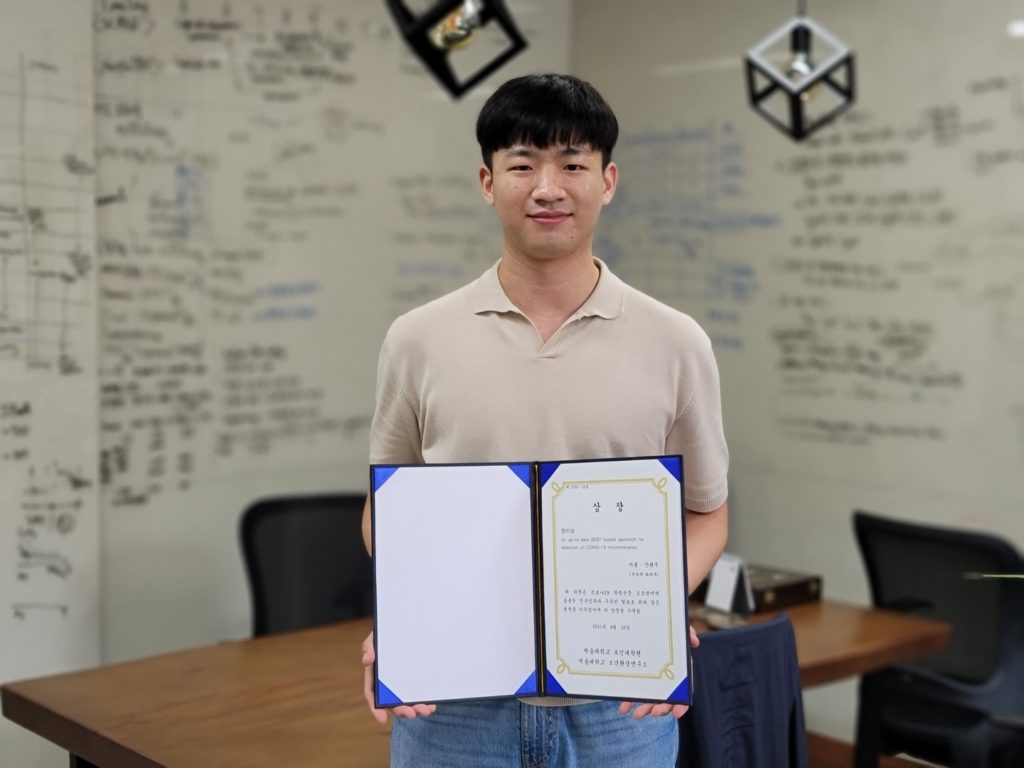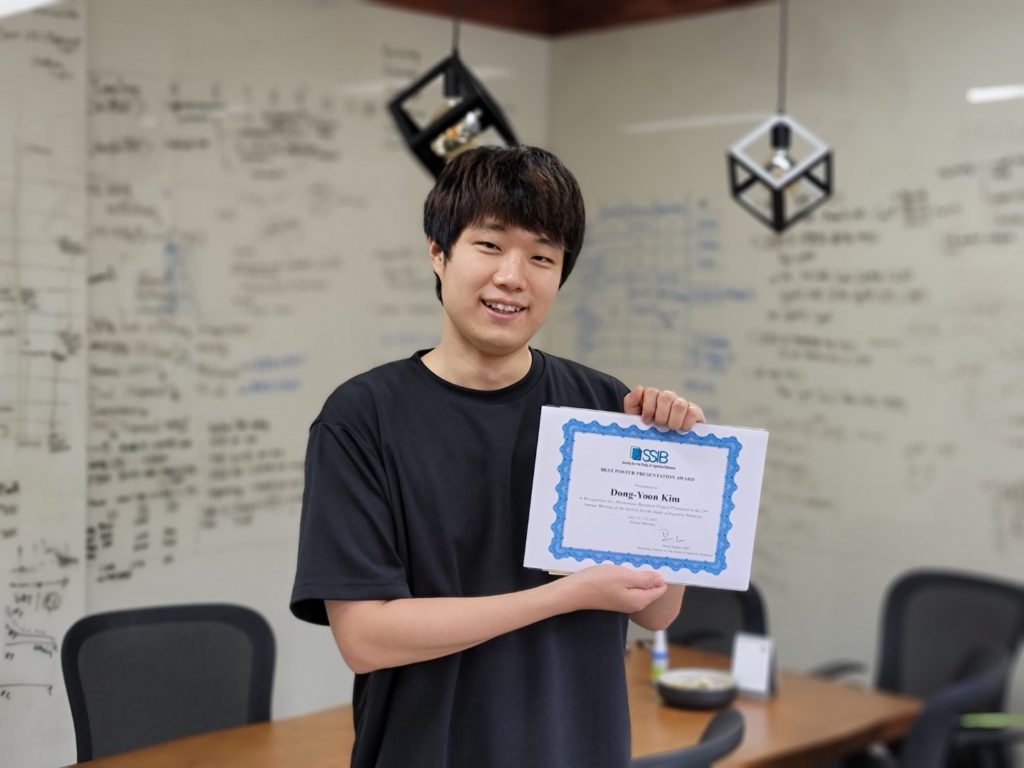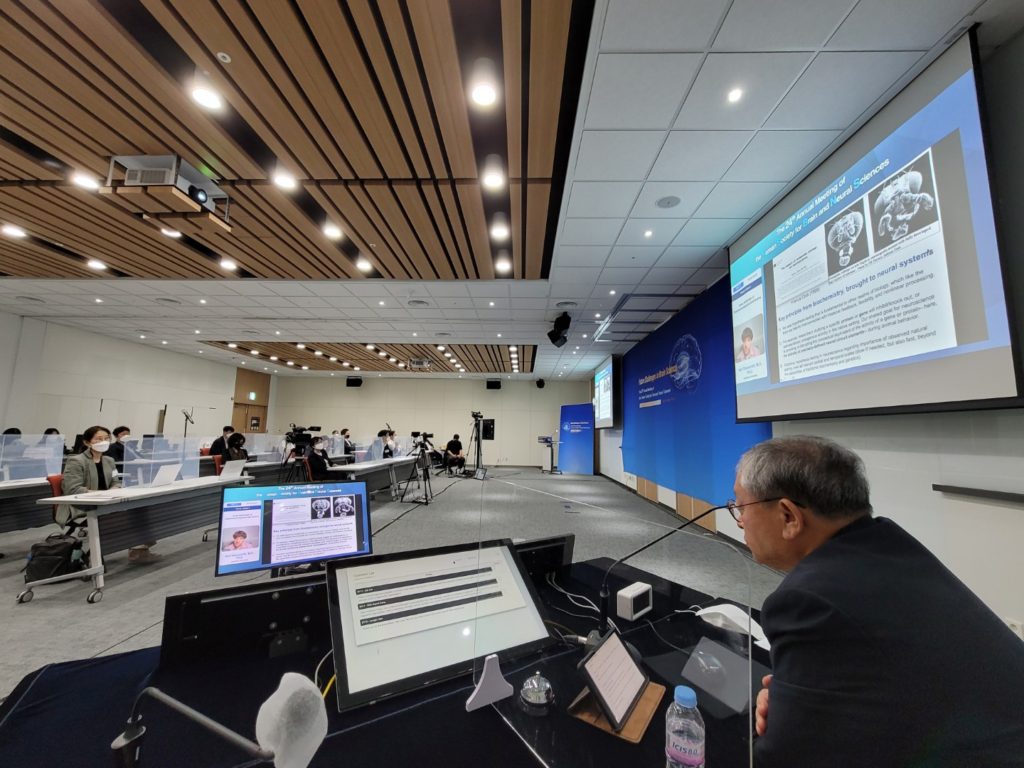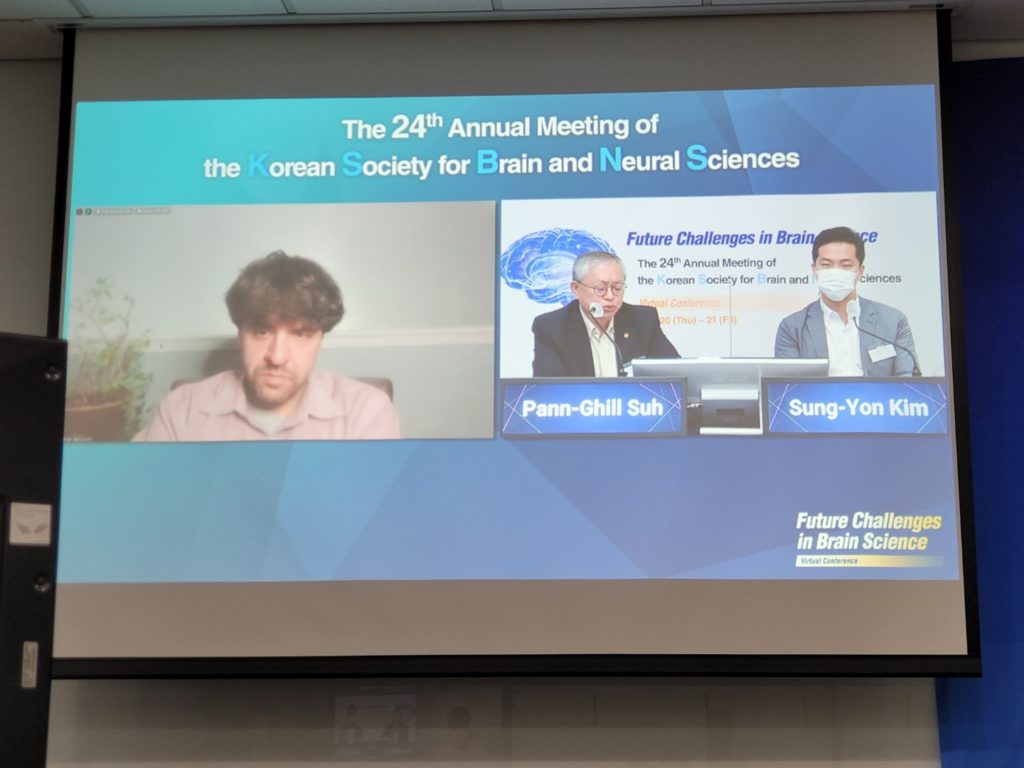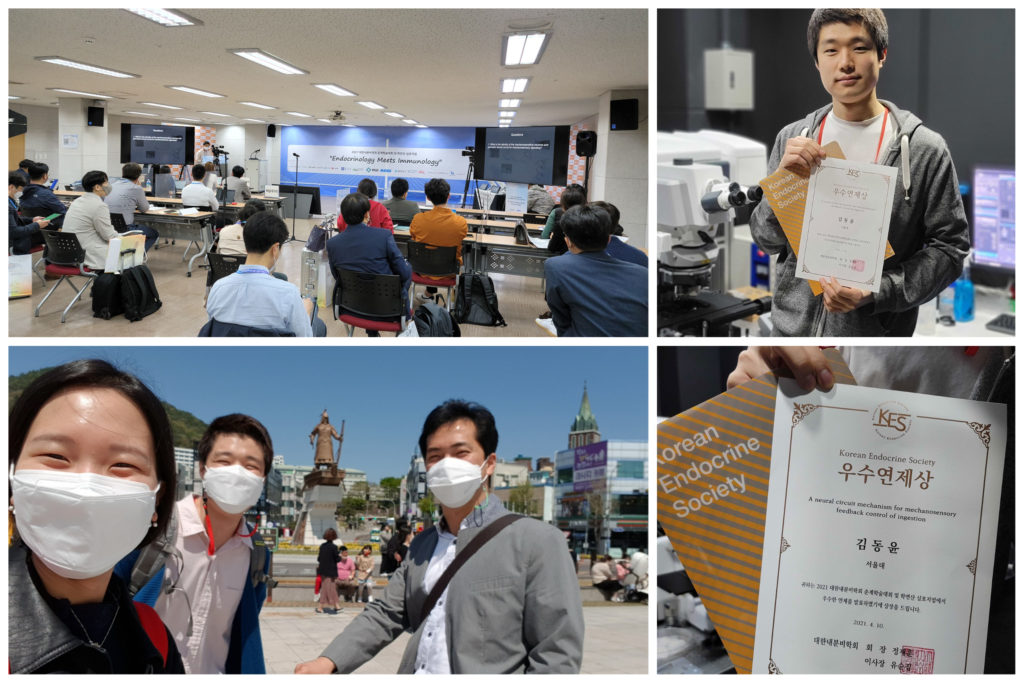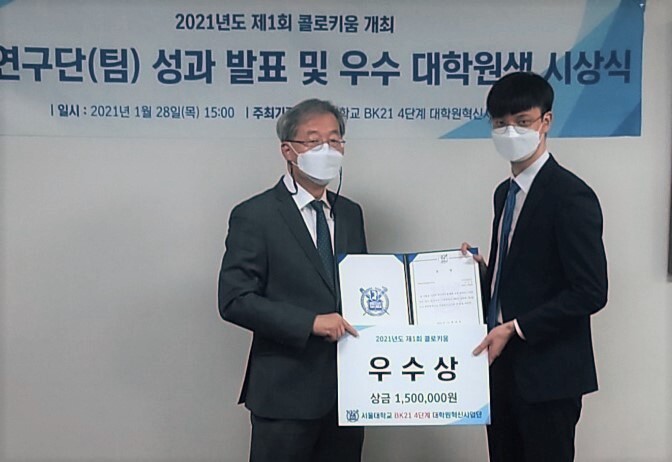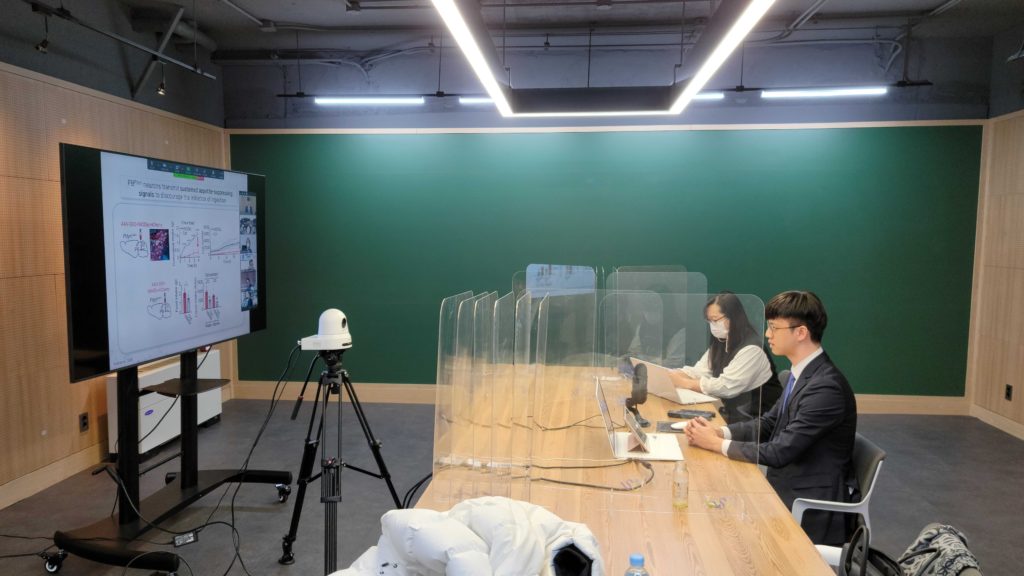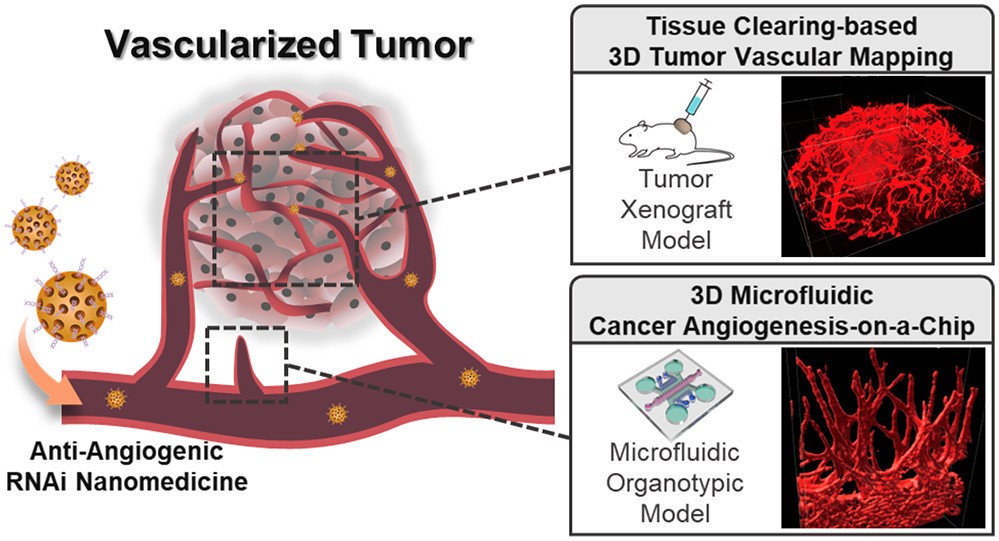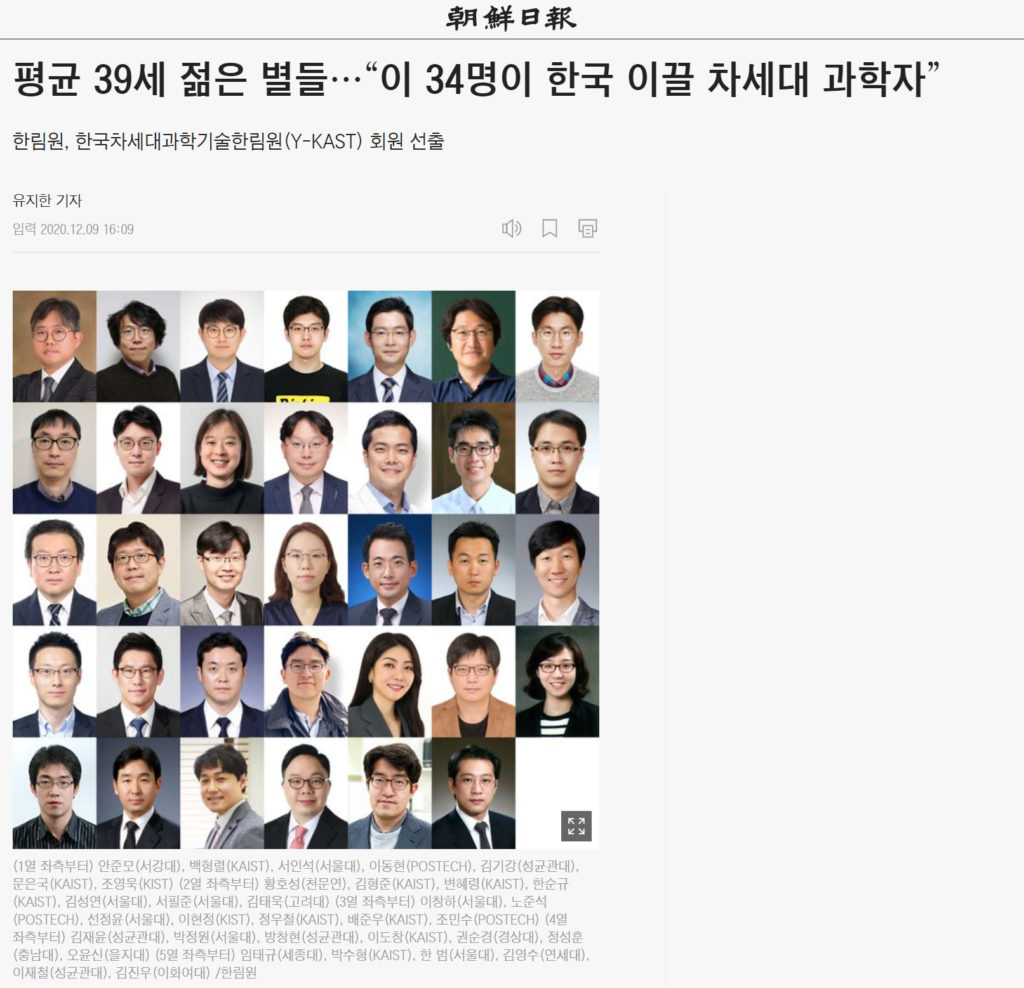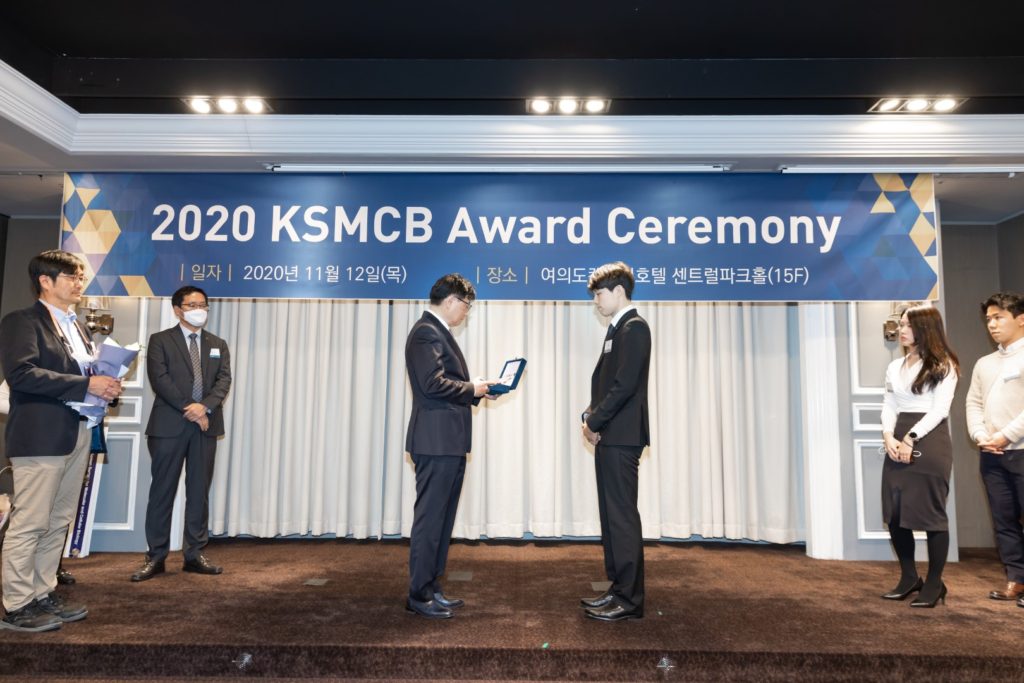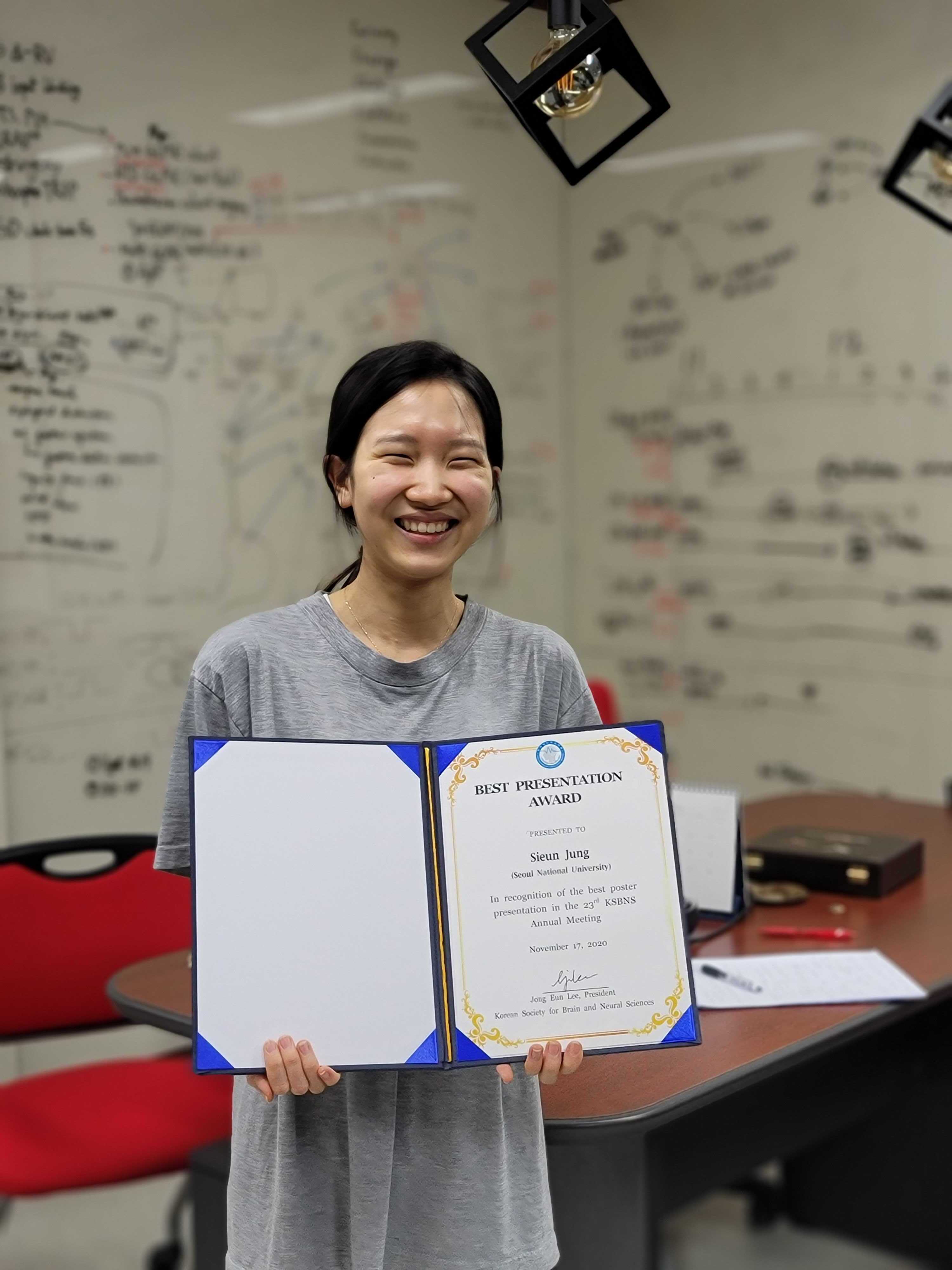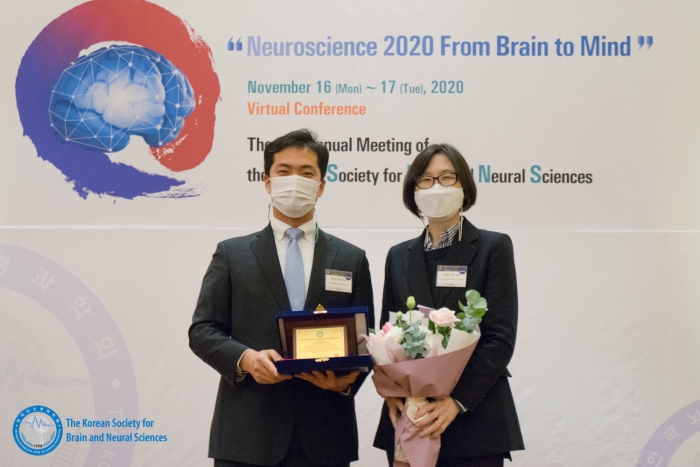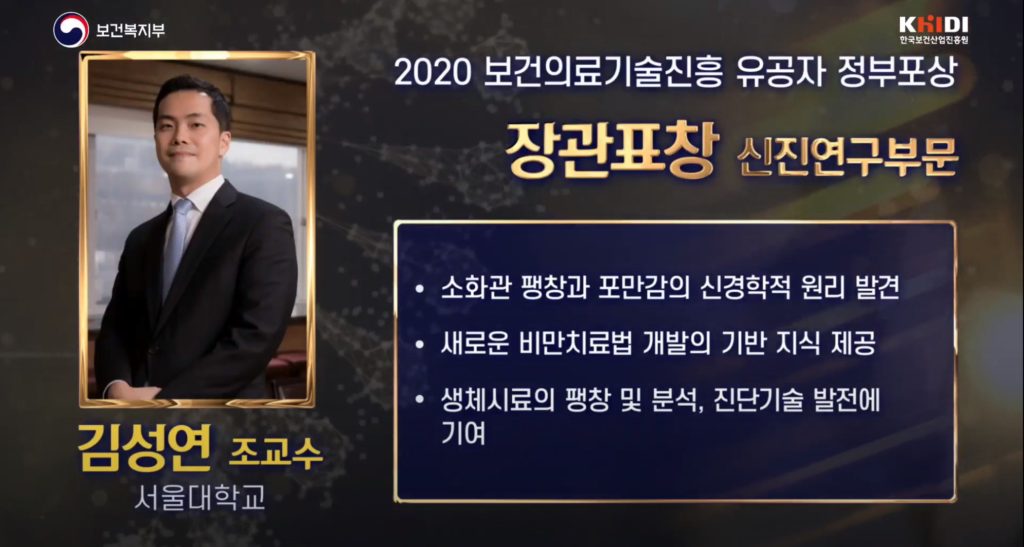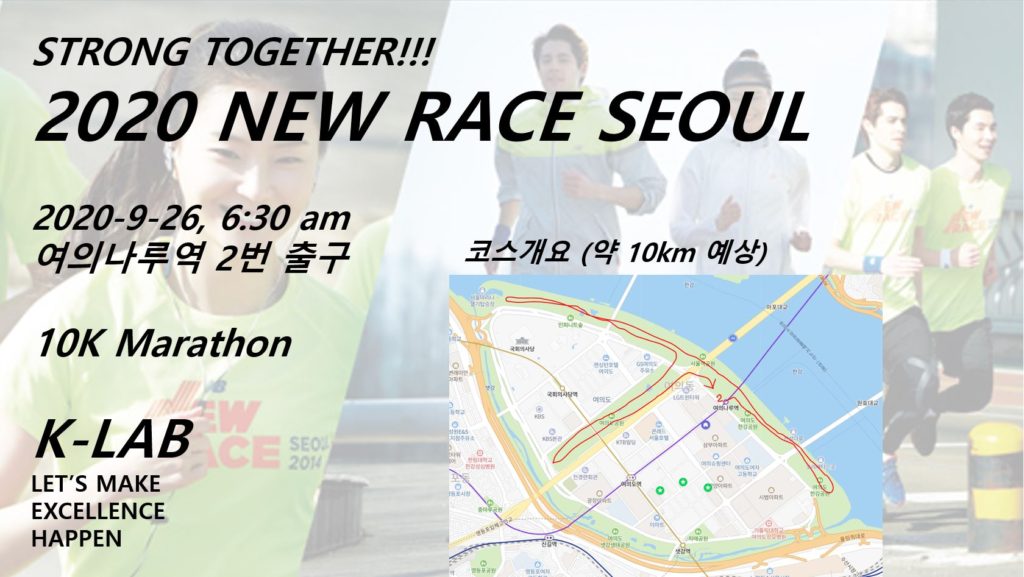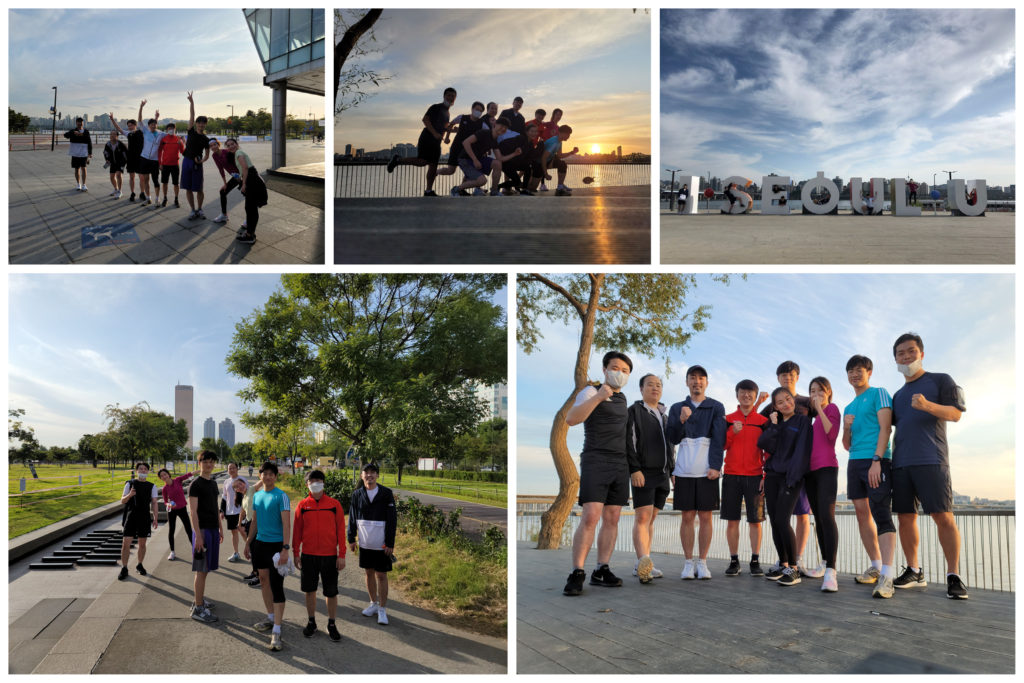Check out our new paper in Neuron! We wear coats, turn on heaters, and enjoy hot drinks on cold days. Strikingly little is known about this everyday behavior—even a forebrain region, not to speak of a cell type. We finally discovered and characterized them.
Jung, S.#, Lee, M.#, Kim, D. -Y.#, Son, C., Ahn, B. H., Heo, G., Kim, M., Park, H. -E., Koo, D. J., Park, J. H., Lee, J. W., Kim, S. -Y. (2022). A forebrain neural substrate for behavioral thermoregulation. Neuron. DOI: 10.1016/j.neuron.2021.09.039. #Equal contribution
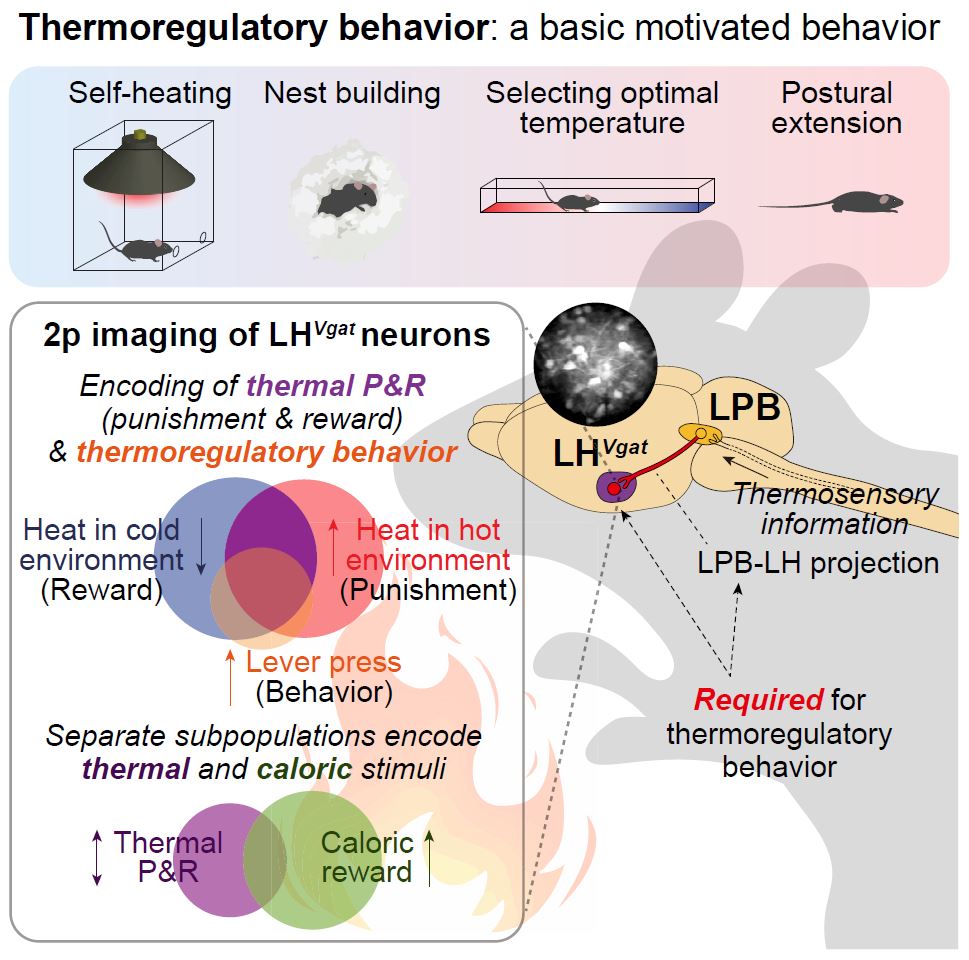
Thermoregulatory behavior is a basic motivated behavior for body temperature homeostasis. Despite its fundamental importance, a forebrain region or defined neural population required for this process has yet to be established.
We found that Vgat-expressing neurons in the lateral hypothalamus (LHVgat neurons) are required for diverse thermoregulatory behaviors. The population activity of LHVgat neurons is increased during thermoregulatory behavior and bidirectionally encodes thermal punishment and reward (P&R). While this population also regulates feeding and caloric reward, inhibition of parabrachial inputs selectively impaired thermoregulatory behaviors and encoding of thermal stimulus by LHVgat neurons.
Furthermore, two-photon calcium imaging revealed a subpopulation of LHVgat neurons bidirectionally encoding thermal P&R, which is engaged during thermoregulatory behavior, but is largely distinct from caloric reward-encoding LHVgat neurons.
Our data establish LHVgat neurons as a required neural substrate for behavioral thermoregulation and point to the key role of the thermal P&R-encoding LHVgat subpopulation in thermoregulatory behavior.
Huge thanks to our team of stellar grad students, especially co-first authors Sieun, Myungsun and Dong-Yoon. It is truly an honor and privilege to work alongside them. Congrats!!!
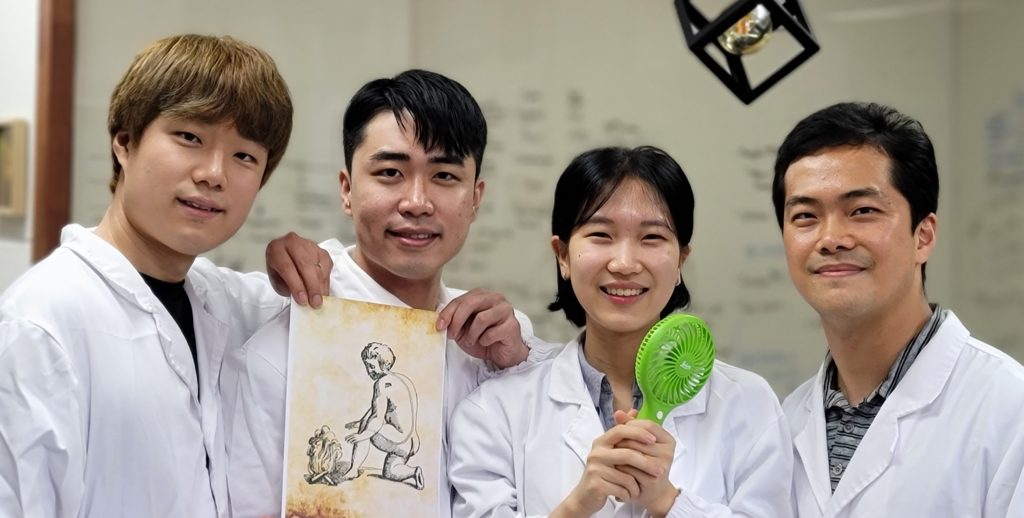
Also view Sung-Yon’s 20-min talk on this work!
